-
Administrator
Site Admin-

Originally Posted by
Phar_Ted
What I now understand about a router makes me want to be a proud owner of one, if you could recommend one or some brands, that would be cool!
I'll be gald to give you information and advice on routers. I've used and own several.
I saw some really nice features that I liked a lot in Dlink routers, and the last one that I bought was D-link. But I'm very disapointed in the model that I bought. (It was the 514 and D-link has since discontinued it, although there may still be some retailers trying to unload them). Some of the features I bought it for never worked right (although you couldn't tell this from the manual before buyng it). So I'm somewhat soured on D-link, although I realize that other models might be good choices for some users.
The different brands of routers have a lot of different features, but all basicall do the same thing. Many of these features are things that are very handy for some users and completely useless for others, so doing some research and deciding what you want may be very handy here. For example, some but not all manufacturers support a feature that would let you enable and disable Internet access by time of day and even day of week. For parents with kids with their own computer this may be a very handy way to limit Internet access, other may not have any use for this. Some router makers (such as D-link) allow you to lock a local computer to a particular IP address (but still use DHCP to assign the address), but many makers (such as SMC and Netgear) may make it harder to lock an IP address to a local computer. This matters to me because I occasionally want to run a server and need to know what IP address a system will come up on when I reboot it, but it may not matter at all to others).
One major difference is that there are wired routers and wireless routers. In general the wireless routers still have 4 wired ports to them, so if they were the same price wireless would almost always be a better choice. And the routers have come down so much in price that they frequently are the same price, or wireless is even less!
There are many different types of wireless (wifi) systems. 802.11b is the base standard for home use. It's rated at 11mb/s. Just about all faster equipment intended for home use will downgrade to it. It is by far the lowest price. 802.11g is fatster (rated at 54mb/s). It is usually more expensive but I have on occasion seen 802.11g routers under $10 after rebate in the U.S. I'm not going to try to translate that into hoser money, but you guys usually can get in on the same rebates we can (maybe not always though, eh?) There are newer and faster systems too, although the standards for them have not been finalized and so equipment for them may only work for one manufacturer. Unless you have an application where you really can justify high speed wireless I would suggest sticking with low cost units that have standards, And remember that if you are using the network connection primarily for connecting to the Internet then your ISP will be the bottleneck, not the wireless speed. Also, be warned that while there is some wireless support in Linux for some wireless cards, not all cards are or can be supported. And more 802.11b cards are supported than faster cards. Still, even if you don't plan on using wireless at all, it's nice to have if a friend with a notebook with wireless capability visits, particularly if you didn't pay anything extra for it.
My real advice would be to shop around a little on your own and post back what you are looking at. Manuals for most routers are available on their manufacturers websites and are worth reading before buying, particularly if you are shopping for features. Or if you find a wirelss router at $2.99 after rebate (as I have seen recently), snatch it up with the full understanding that you might buy something else later but this first router will make a great learning tool, and don't hesitate to replace it if you find something else you like more that is reasonably priced.

Originally Posted by
Phar_Ted
OK, to clarify: ethernet jack, LAN jack, same thing?
Ethernet has used many different connections over the years, as well as different types of wires. I still have some ethernet cards around with thicknet and thinnet (coax) connectors on them, although it's be about 5 years since I last connected systems up with coax (I'm sure there is still some out there in operation though). The current standard is a 10/100 twisted pair system using RJ-45 connectors and CAT-5 or better wire, although there are 10/100/1000 systems widely available and even faster ethernet systems over optical cable. But the thing on the back of your motherboard that you call a LAN jack is certainly a RJ-45 ethernet connection. You'll need to check the MB documentation to see if it supports 10/100 or 10/100/1000. If it's 10/100 then Knoppix very likely will support the chip set used, if 10/100/1000 then maybe, maybe not, the easy way to find out is to try.
Similar Threads
-
By JustinSL in forum Networking
Replies: 6
Last Post: 04-25-2005, 02:38 PM
-
By Neuling in forum Networking
Replies: 1
Last Post: 02-13-2005, 11:28 PM
-
By gandalf1967 in forum Networking
Replies: 2
Last Post: 09-02-2004, 02:45 PM
-
By beetlebz in forum Networking
Replies: 6
Last Post: 06-21-2003, 09:27 PM
-
By Slimboy in forum Hardware & Booting
Replies: 2
Last Post: 03-20-2003, 12:40 AM
 Posting Permissions
Posting Permissions
- You may not post new threads
- You may not post replies
- You may not post attachments
- You may not edit your posts
-
Forum Rules

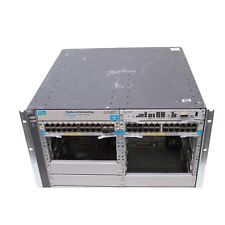
HP Procurve 5412zl Network Switch
$84.99
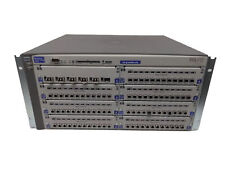
HP ProCurve 4108gl J4865A Modular Network Switch
$89.99
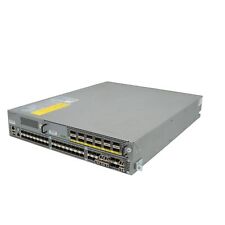
Cisco Nexus 48-Port 10G SFP+ Switch N9K-9396PX w/ 9K-M12PQ 12-Port 40G QSFP
$314.99
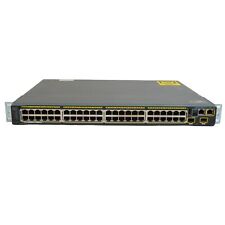
Cisco Catalyst 48-Port Manage Gigabit Switch w/ 2x 10G SFP+ WS-C2960S-48FPD-L
$47.99
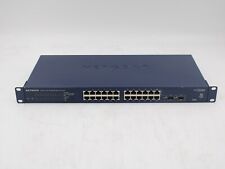
Netgear Prosafe GS724T V2 24-Port 10/100/1000 Gigabit Ethernet Network Switch
$27.99

NetGear ProSafe GS748T V4 48-Port Gigabit Smart Switch w/ Ears
$30.00
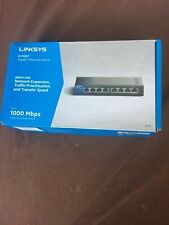
Linksys SE3008 8 Ports Rack Mountable Gigabit Ethernet Switch
$21.99
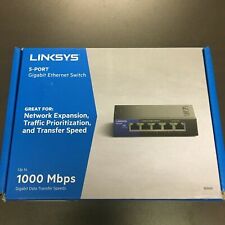
New Linksys SE3005 5-port Gigabit Ethernet Switch
$18.99
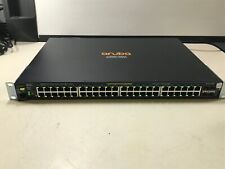
ARUBA J9772A 2530-48G PoE+ 48 PORT ETHERNET SWITCH W/ RACK EARS J9772-60301
$125.69
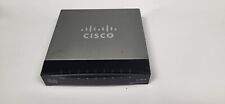
Cisco Small Business 8 Port Gigabit Smart Switch SG200-08
$37.95
Originally Posted by Phar_Ted
Originally Posted by Phar_Ted



 Reply With Quote
Reply With Quote










